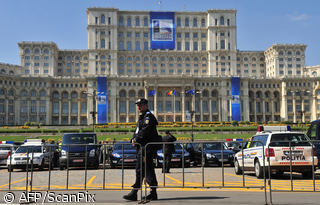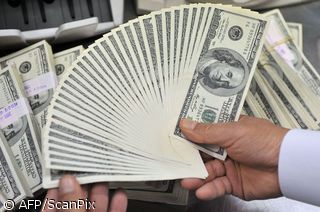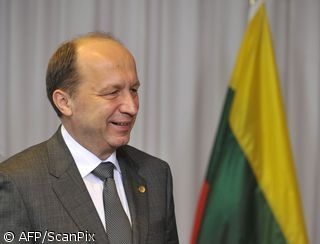Kazakhstan to start building rail link between Southeast Asia and Europe
Published:
30 December 2004 y., Thursday
Kazakhstan will start building a railway link next year connecting Southeast Asia with the European Union, Transport Minister Kazhymurat Nagmanov said Wednesday.
The 3,000-kilometre link is estimated to cost $3.5 billion to $4 billion US and is to be completed within 15 years. It will connect China via Kazakhstan with Turkmenistan and Turkey.
The link is designed to be an alternative to the Trans-Siberia railway in Russia's Far East, which also connects Asia with Europe, as well as to ocean shipments. Kazakhstan and Russia foresee that freight transit between Europe and Asia will be very lucrative.
Once built, the Kazakh link will have an advantage over the Russian alternative: the Kazakh railroad will be of international standard, while the Russian railway is 12.7 centimetres wider, designed to slow an enemy during the world wars of the 20th century. This results in delays at borders since trains need to have their wheels changed.
Nagmanov said transit from Southeast Asia to Europe via Kazakhstan will take 10 days. The flow of cargo is planned to reach 35 million to 40 million tons a year by 2010, and ultimately 100 million tons.
Šaltinis:
story.news.yahoo.com
Copying, publishing, announcing any information from the News.lt portal without written permission of News.lt editorial office is prohibited.
The most popular articles
 The EBRD is supporting the modernisation of transport infrastructure in Serbia with a €150 million sovereign loan to finalise the construction of a new motorway section along the strategic Corridor X.
more »
The EBRD is supporting the modernisation of transport infrastructure in Serbia with a €150 million sovereign loan to finalise the construction of a new motorway section along the strategic Corridor X.
more »
 The Executive Board of the International Monetary Fund (IMF) today completed the first review of Romania’s economic performance under a program supported by a 24-month Stand-By Arrangement (SBA).
more »
The Executive Board of the International Monetary Fund (IMF) today completed the first review of Romania’s economic performance under a program supported by a 24-month Stand-By Arrangement (SBA).
more »
 The Executive Board of the International Monetary Fund (IMF) today approved a three-year, SDR 13.57 million (about US$21.5 million) arrangement under the Poverty Reduction and Growth Facility (PRGF) for the Union of the Comoros.
more »
The Executive Board of the International Monetary Fund (IMF) today approved a three-year, SDR 13.57 million (about US$21.5 million) arrangement under the Poverty Reduction and Growth Facility (PRGF) for the Union of the Comoros.
more »
 The Executive Board of the International Monetary Fund (IMF) today completed the second review of Mongolia's economic performance under a program supported by an 18-month Stand-By Arrangement (SBA).
more »
The Executive Board of the International Monetary Fund (IMF) today completed the second review of Mongolia's economic performance under a program supported by an 18-month Stand-By Arrangement (SBA).
more »
 Parex banka has established a subsidiary, SIA NIF (“Nekustamo īpašumu fonds”, or “Real Estate Fund”), which will professionally manage assets that are not related to the Bank’s core business.
more »
Parex banka has established a subsidiary, SIA NIF (“Nekustamo īpašumu fonds”, or “Real Estate Fund”), which will professionally manage assets that are not related to the Bank’s core business.
more »
 In his address at the Lithuanian-Belarusian Business Forum “Belarus and Baltic States: new prospects for cooperation”, Prime Minister Andrius Kubilius has pointed out that Lithuania sees Belarus as creating its future in Europe...
more »
In his address at the Lithuanian-Belarusian Business Forum “Belarus and Baltic States: new prospects for cooperation”, Prime Minister Andrius Kubilius has pointed out that Lithuania sees Belarus as creating its future in Europe...
more »
 JDRF Employs VoIP and Web-Based Video Collaboration Enabled by Cisco for More Effective Teamwork Among Employees and Constituents.
more »
JDRF Employs VoIP and Web-Based Video Collaboration Enabled by Cisco for More Effective Teamwork Among Employees and Constituents.
more »
 On 16 September 2009, AB Bank SNORAS group finished the transaction during which it purchased from AB “Invalda” with its own funds 100 per cent of the shares of AB “Finasta įmonių finansai”, managing AB Bank “Finasta”.
more »
On 16 September 2009, AB Bank SNORAS group finished the transaction during which it purchased from AB “Invalda” with its own funds 100 per cent of the shares of AB “Finasta įmonių finansai”, managing AB Bank “Finasta”.
more »
 Federal Reserve Chairman Ben Bernanke that the worst U.S. recession since the Great Depression was probably over, but the recovery will take time.
more »
Federal Reserve Chairman Ben Bernanke that the worst U.S. recession since the Great Depression was probably over, but the recovery will take time.
more »
 Growth expected to return in the second half of 2009. Forecasts are still uncertain but fears of a severe, prolonged recession are fading.
more »
Growth expected to return in the second half of 2009. Forecasts are still uncertain but fears of a severe, prolonged recession are fading.
more »